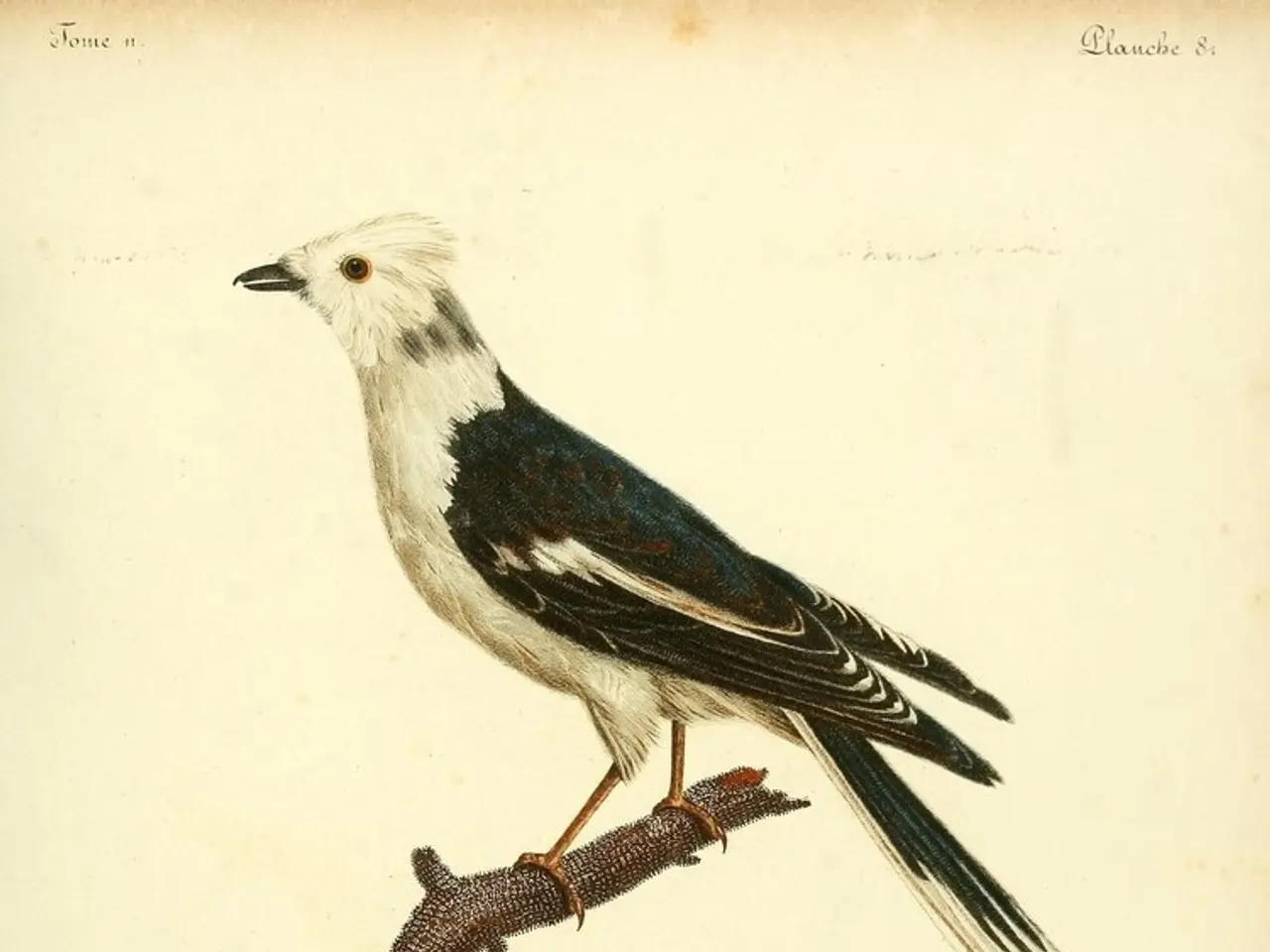Overflow of wild birds at veterinary clinic due to heat-related issues - Wild birds face increased heat stress - Animal Hospital nearing capacity
In the sweltering heat of mid-2025, Germany, and specifically the region of Hessen, has been experiencing a significant impact on its wildlife. The current heatwave has been particularly challenging for wild birds, pushing many care facilities to their limits.
According to reports, the clinic director at the Faculty of Veterinary Medicine at the Justus-Liebig-University, Michael Lierz, has expressed concern over the increased number of admissions. In the first hot July days alone, 282 wild birds were brought to the clinic, with the first six months of the year seeing around 1,000 wild animals reach the facility.
The problematic species include swallows and swifts, which are finding it increasingly difficult to find suitable nesting sites with adequate ventilation. Young birds of these species often leave the nest too early in high temperatures, leading to dehydration if found by humans.
The Gießen working group on wildlife medicine at the Justus-Liebig-University is operating at full capacity, but the funds are not sufficient to maintain care at this level. Lierz stated that there is no state-funded position for the care of such animals in Hessen, unlike in other federal states.
Despite the lack of funding, Lierz attributes the higher patient numbers to increased public awareness. The clinics at the Faculty of Veterinary Medicine at the JLU are often the first point of contact for the public, but they receive no funding for wildlife care.
To help alleviate the strain on wildlife, Lierz recommends setting up birdbaths in gardens or on balconies. However, it's crucial to clean these birdbaths regularly and fill them with fresh water.
While specific funding details for wildlife care amid these heatwaves are not provided in the current search results, increased financial support is typically required during such environmental emergencies. Regional authorities usually consider emergency funding to support affected wildlife populations during such crises.
For more precise funding information, consulting local Hessen government announcements or wildlife organizations' communications would be recommended. It's important to remember that many of these animals are specialized insect eaters, causing a scarcity of food.
In summary, the ongoing heatwave in Hessen is causing a surge in wild bird admissions to care facilities due to heat stress. While specific funding details for wildlife care amid these heatwaves are not provided, increased financial support is typically required during such environmental emergencies. Ongoing monitoring and support are crucial to mitigate the impact of extreme heat events on vulnerable wildlife populations.
The community and employment policies could be amended to include provisions for emergency funding to support wildlife care during extreme environmental events such as the current heatwave in Hessen. Additionally, the environmental-science sector could collaborate with health-and-wellness organizations to promote the importance of maintaining birdbaths regularly filled with fresh water in backyards and on balconies to provide a vital water source for struggling wild birds.




